How to get rid of fruit flies: practical advice for deterring these bugs
Want to know how to get rid of fruit flies? We've rounded up all the top tips you need

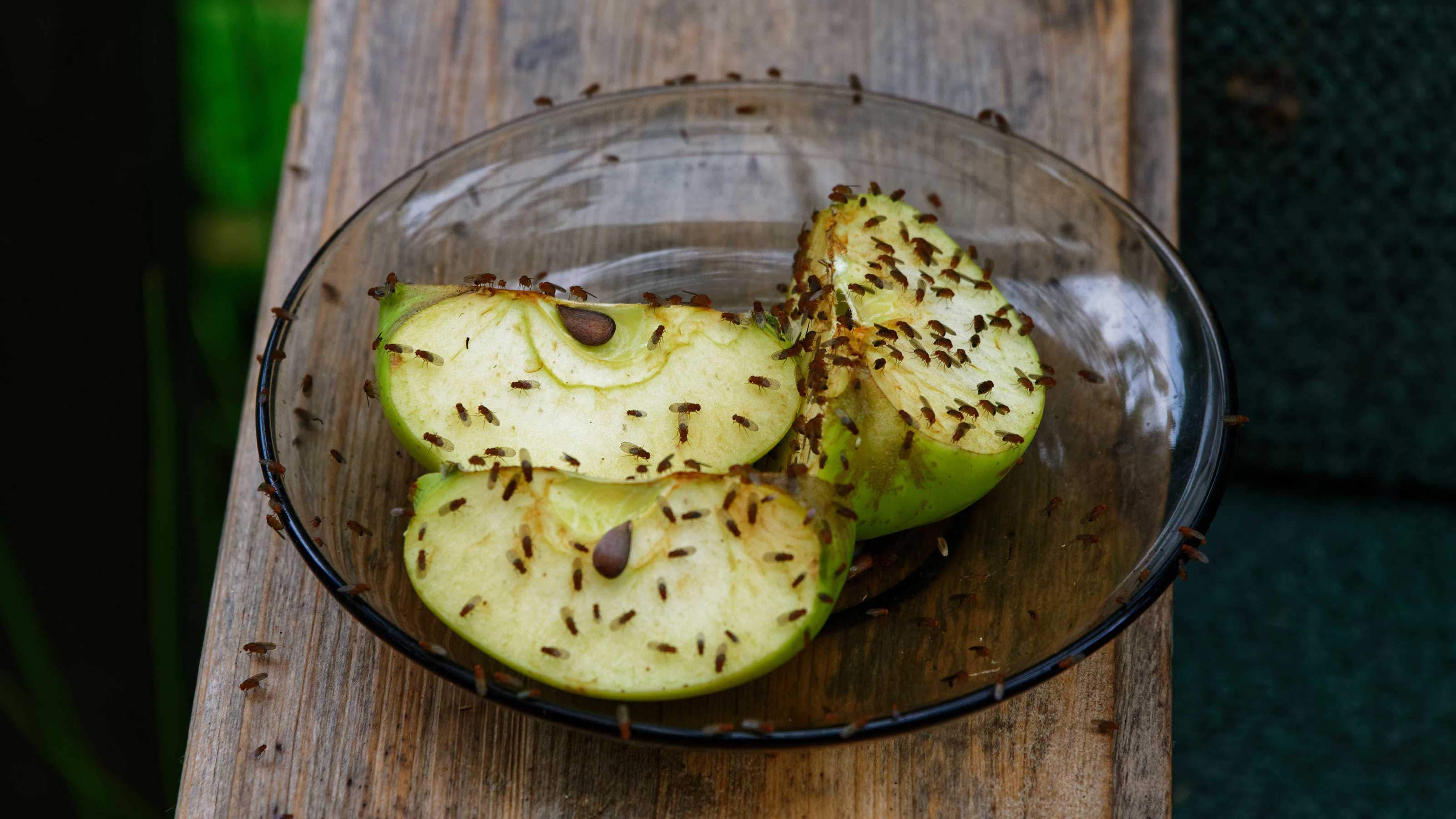
If you're wondering how to get rid of fruit flies, you've come to the right place. These insects may be small but they're still a nuisance – whether they're buzzing around your alfresco BBQ buffet or crawling over your kitchen. But there are some easy ways to send them on their way.
Sure, they might not be chewing through your home's foundations (you're more likely to need our guide on how to get rid of termites for that) or threatening to sting you – but these tiny flies are pretty unhygienic. After all, who knows where else they've been before they find your bowl of berries or other fresh produce (but according to Healthline, they're particularly drawn to manure). To put it simply, they can easily spread bacteria onto your food which can then make you sick. Plus, the female flies like to lay their eggs directly onto fruit, which – as we think you'll agree – is also rather unappetizing. So, it's definitely best to take action if you see them.
How to get rid of fruit flies: easy tips and advice
Luckily, fruit flies are one of the simplest pests to deter. We've rounded up all the top tips you need to learn how to get rid of fruit flies below.
1. Sort out the source
Fruit flies are on the mission for food, so sorting out the source will stop them being attracted to your home in the first place. Usually this entails simple things like keeping food storage areas clean, wrapping up food once it's been opened, and taking out the bins regularly. Once you've taken the bins out, give them a good wipe down and make sure they're fully dry before refilling.
It's no surprise that fruit flies are drawn to fruit – but particularly decaying fruit. Check over your fruit bowl and throw away anything that's looking on the turn. They also like fermented food and drink, such as liquor, so it's a good idea to keep these bottles well sealed when not in use.
Similarly, keeping food properly stored and clearing up leftovers and spills quickly can help to deter ants, too. Our guide on how to get rid of ants has more advice.
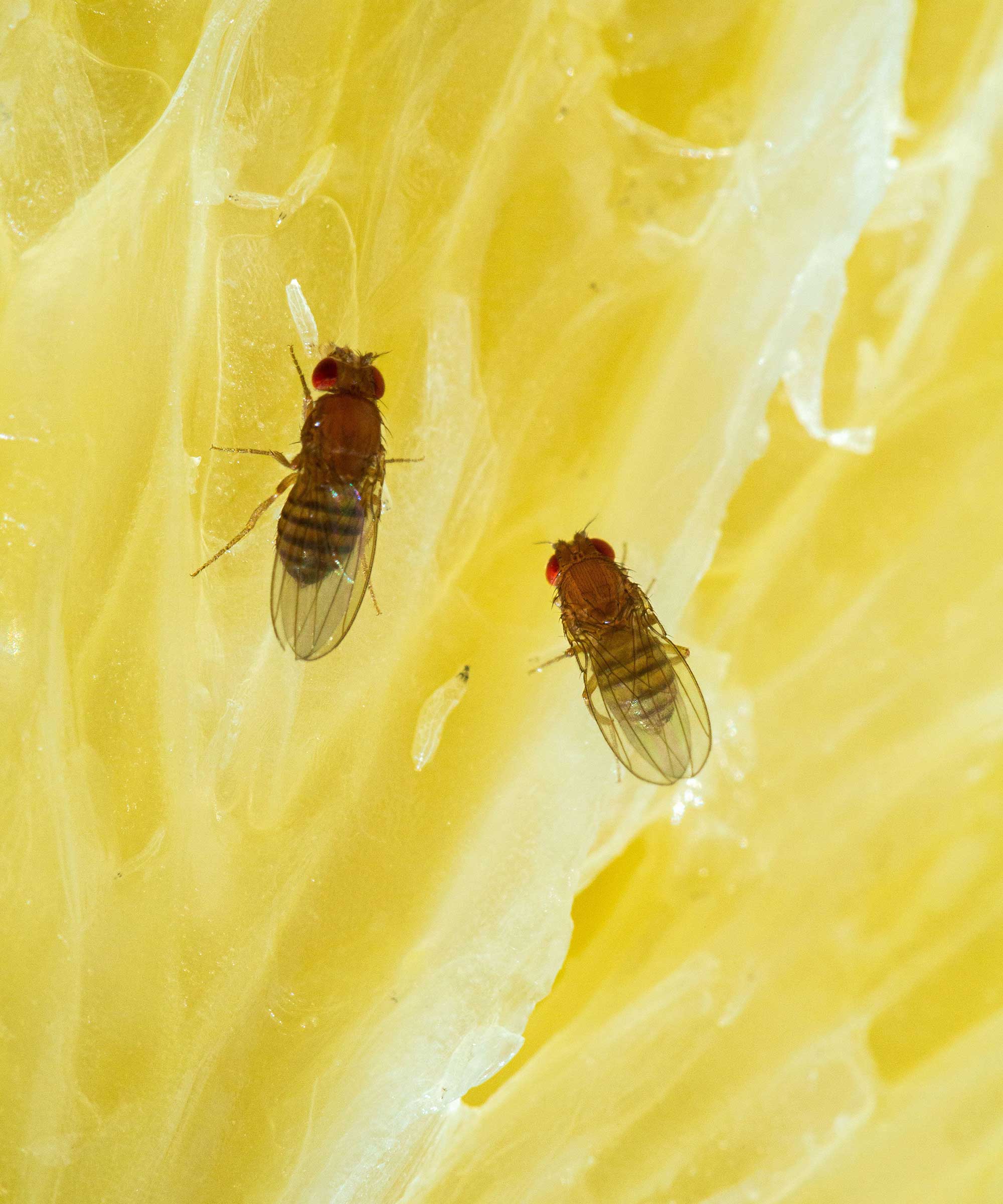
2. Use old fruit to make a trap
If, after a thorough clean, you're still dealing with a fruit fly infestation, a trap might be the way forward. You can take any of that over-ripe fruit, pop it in a bowl or similar container, cover the top in cling film, then make a few holes in the top using a fork. The fruit flies will happily make their way in but then won't be able to get back out again, making it easy to dispose of them.
Traps can come in useful if you need to know how to get rid of wasps, too – and they're easy to make yourself. Our guide has all the practical tips.
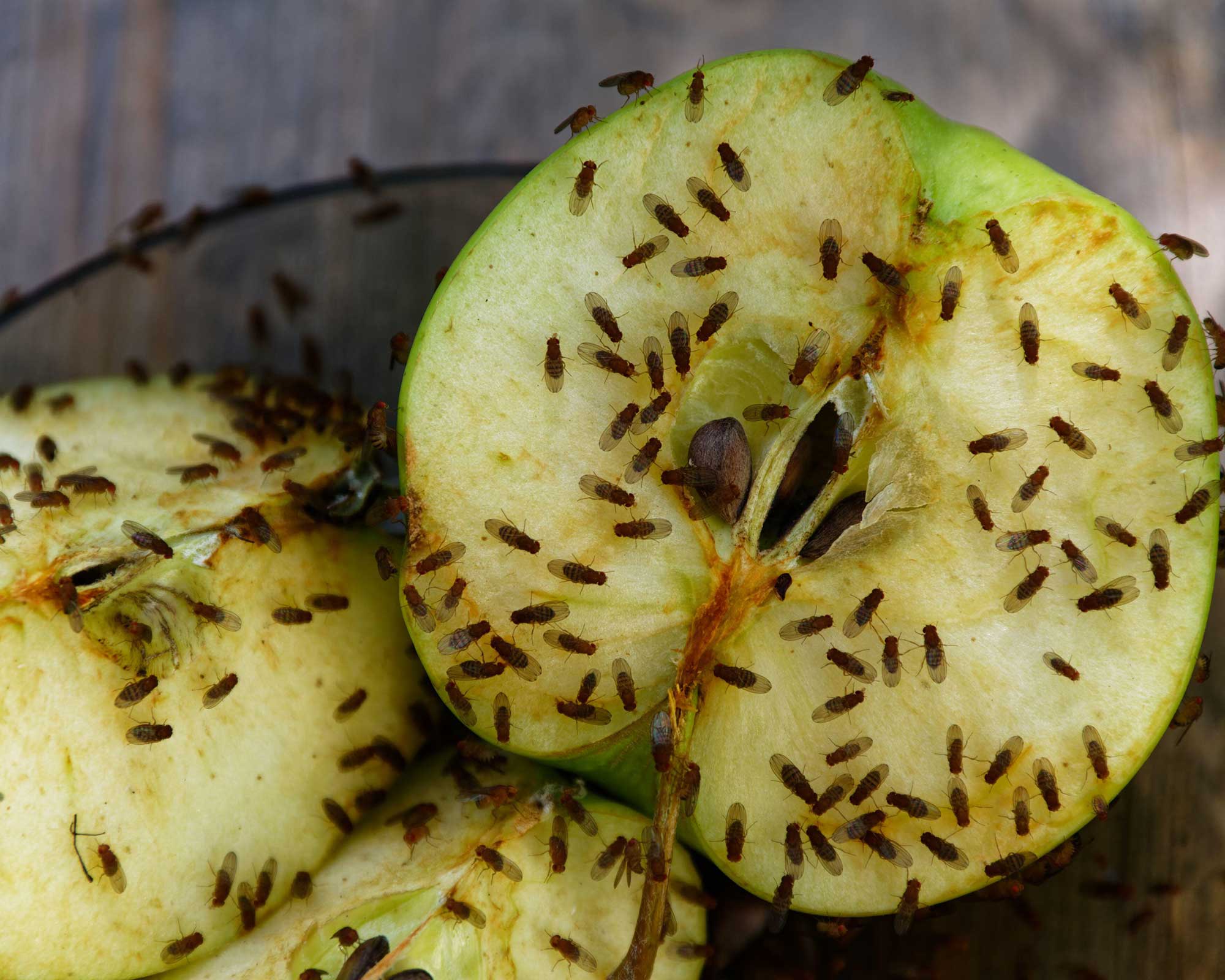
3. Make a liquid trap with wine
If you don't particularly want a pot of rotting fruit lying around, try this trick instead from Healthline. Instead of fruit, fill a container will a small amount of wine or other alcoholic beverage mixed with dish detergent. Again, cover with cling film and poke holes in the top, and wait.
The flies will swarm in, and then become trapped and drown. Repeat the process until the infestation has cleared. You can also try this with a mix of vinegar (of the cider, balsamic or red wine variety), sugar and dish detergent.
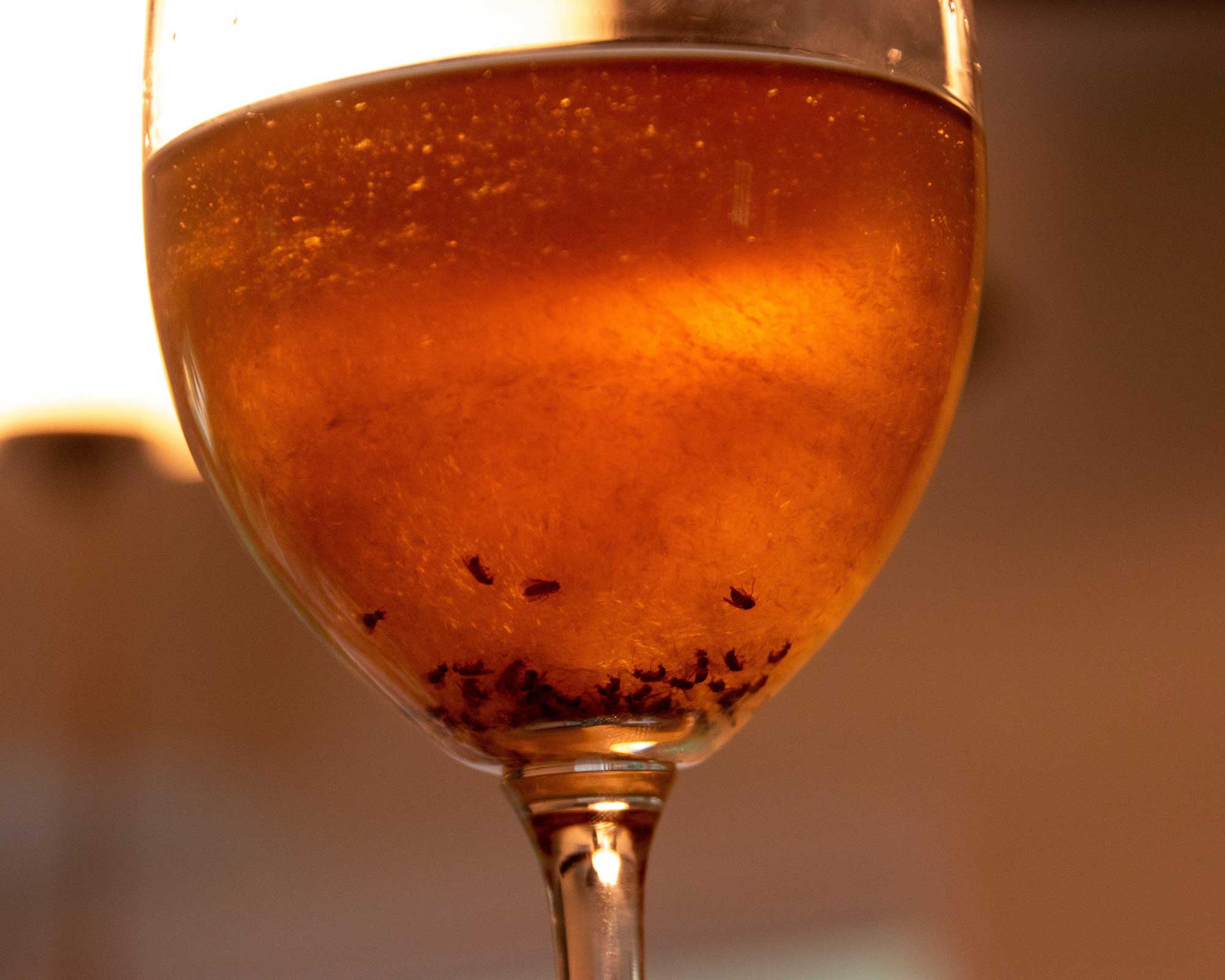
4. Try essential oils
Fruit flies aren't a fan of some strong smells, such as lavender, clove, and lemongrass, so try burning these essential oils to help deter them. You could also fill small muslin bags with the aromatics, and hang them around areas where the flies are proving to be a pain.
It's said that basil can help to deter fruit flies too, so try growing it in pots around your indoor or outdoor kitchen ideas. The leaves make a delicious addition to all kinds of meals, so it's a win-win. Similarly, peppermint is thought to have the same effect and is simple to grow (and will give summertime drinks an extra sense of pizzazz). Our guide on how to grow mint will help you get started.

5. Opt for a commercially bought solution
If you want a quick fix when it comes to how to get rid of fruit flies, there are plenty of commercially available solutions that you can try. These range from formulas to be poured down the drain (where fruit flies can sometimes reside), to sticky and UV-light traps. You can also buy bug-killing sprays – but remember to always read the instructions before use (and don't use them around food).
Need tips on how to get rid of carpenter bees, too? Our feature has you covered.
How can you identify fruit flies?
Not 100% sure it's fruit flies that you're dealing with? Here's what to look out for:
- Size-wise, they're about a third of the size of a house fly, or 1/8in.
- They tend to be a light tan or orange color, with red eyes.
- You're most likely to see them swarming around fruit, other food sources, or garbage. You might spot them around drains, too. However, there is another pest that resides around drains – the drain fly. Fruit flies have sleeker bodies whilst drain flies are more similar to moths, with fuzzy wings and tufts on their head.
- Fruit flies are around all year, but tend to be more of a nuisance in late summer to fall, when fruits are ready to be harvested.
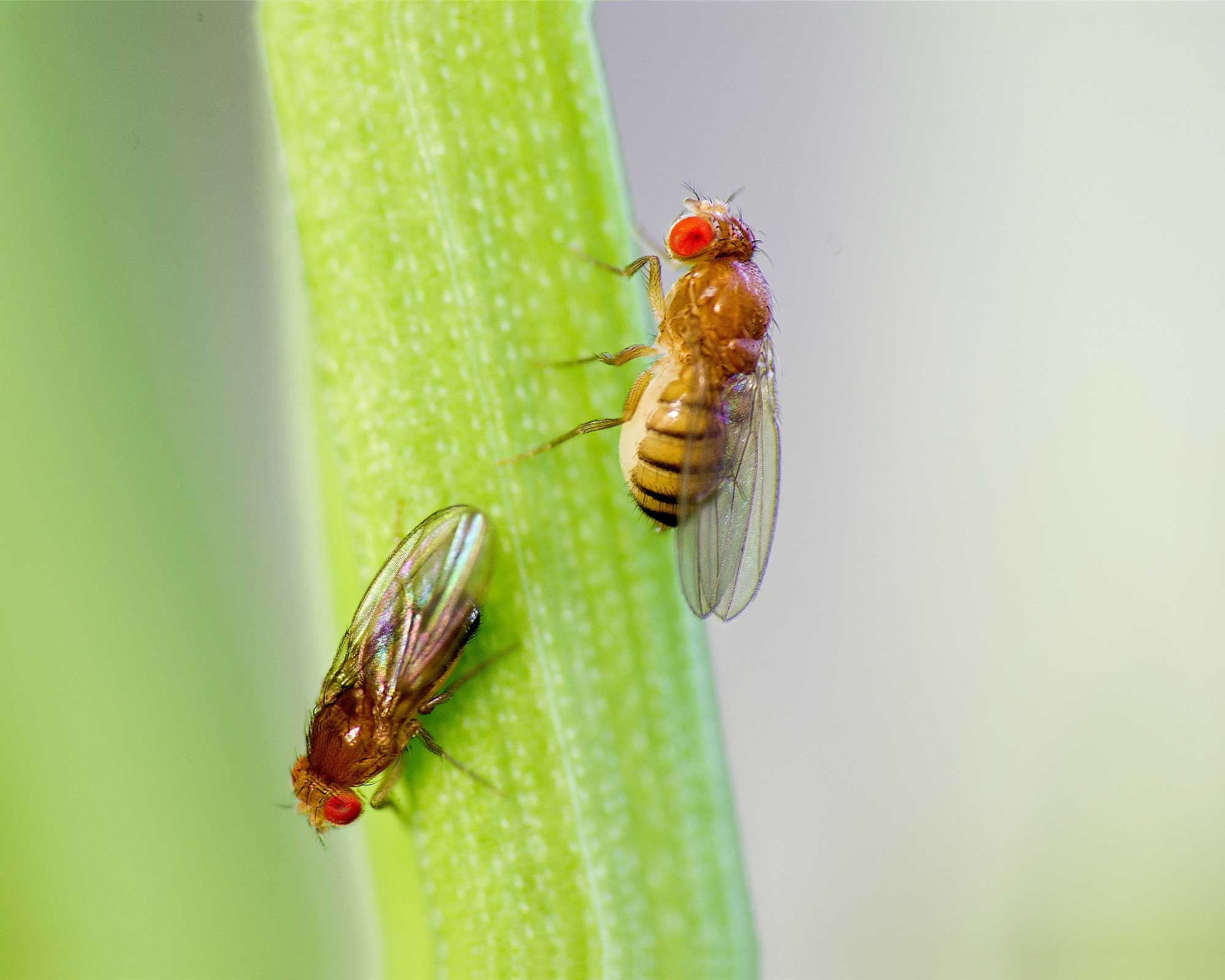
Do fruit flies bite?
Having fruit flies in your home isn't ideal, but you don't need to worry about them biting you. They don't have the right mouths to do so – and they don't feed on blood anyway. They won't sting you either.
If, however, you're dealing with mosquitoes (who will bite), then our guide to the best mosquito repellent plants will come in useful.

The garden was always a big part of Holly's life growing up, as was the surrounding New Forest where she lived. Her appreciation for the great outdoors has only grown since then. She's been an allotment keeper, a professional gardener, and a botanical illustrator – plants are her passion.
